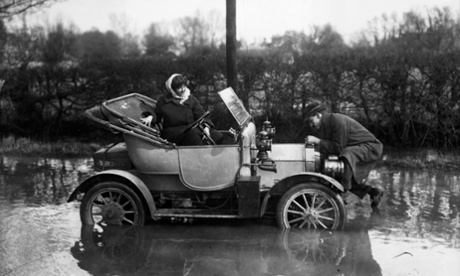The last published report and accounts of 4Children, the leading childcare charity, which has gone into administration and transferred its services, make poignant reading. While results were “not ideal”, things were improving substantially and the organisation was set to return to surplus by March 2016.
It was not to be. Although seemingly heroic efforts were made to get the charity back on track, reducing its annual deficit from the £2.8m logged in those accounts for 2014-15 to £123,000 by this March, the rescue effort ran out of road.
Facing the loss of two big contracts – one of which could probably have been tolerated, but not both – the decision was taken to give up the fight and focus instead on an orderly rundown of the charity to ensure that remaining services for children and families were sustained. “At the end of the day that’s all that matters,” says Imelda Redmond, 4Children’s chief executive since March 2015. “That’s all you exist for.”
Her words are a salutary reminder for the many charities that will be studying reports of 4Children’s demise and thinking it could be them next. After the collapse last year of the British Association for Adoption and Fostering, and the spectacular implosion of Kids Company, prospects look good for charity insolvency practitioners.
Getting beyond the headlines inevitably linking 4Children’s failure with Redmond’s long-serving predecessor, Anne Longfield, who is now the government’s children’s commissioner, what are the lessons for the voluntary sector? What should other chief execs and trustee boards have in mind as they peer with furrowed brows at management accounts turning redder by the quarter?
For Redmond, there are two big learning points. One is that acknowledgement that you are there for your beneficiaries and service users, period. “Admitting that you can do things better if you do it with someone else is a really brave step for trustees to take,” she says. “But it’s sometimes going to be the only way to protect the services.”
The other lesson, as a chief executive, is knowing when to “make the call” and accept that the game is up. “That’s a really hard thing to do,” she reflects. “People can get very caught up in the idea that they will be seen as having failed.”
For Jo Cleary, who served as 4Children’s chair during its rundown, and who has a background in local government, charities need to be taking a leaf out of the town-hall book and doing what councils have done: sharing back-office functions to cut costs; streamlining management so that reporting lines are fewer and clearer; reviewing areas of work where they may be operating too thinly.
“I really feel that a lot of charities need to be looking at their spread,” says Cleary, who was chair of the College of Social Work until ministers withdrew its funding last summer. “But local authorities need to get better at commissioning them, too. They need to be building more strategic partnerships rather than always going out to contract around price.”
It was 4Children’s success in winning childcare contracts – growing rapidly from a turnover of about £5m in 2004 to almost £30m last year – that changed the nature of the organisation from the lobbying and campaigning group that had been set up in 1983, when it was called the National Out of School Alliance, and the umbrella body it became in 1990 when it turned into Kids’ Clubs Network.
Longfield issued a statement saying she considered the charity was coping well when she left in 2015. “When I handed over the reins of 4Children after over 20 years leading it alongside an extraordinarily committed group of trustees, I considered it to be in good shape with a positive future ahead.”
However, there are key question on the minds of many observers as to whether the charity’s governance kept pace with its changes in focus. Longfield was chief executive for 21 years; her chair, Pip O’Byrne, who works in the childcare sector with Family Nurse Partnership, was chair and ran the board for a remarkable 32 years, making way for Cleary this spring only after an external governance review by Cass Business School.
Changes made apparently in response to the review included adoption of the sector convention that trustees should serve no more than two three-year terms as standard, with a third term by exception. The charity also established new committees for audit and risk, governance and safeguarding. But it was all too late.
Friends of Redmond, who was previously chief executive of Carers UK and director of policy and public affairs at Marie Curie, say she arrived at 4Children to find it patently in crisis – but a crisis the scale of which the board seemed not to recognise.
Three trustees resigned in November and December last year and O’Byrne followed in March. Cleary, who joined on the same day that the two contracts were lost, supported Redmond’s recommendation to wind down the operation and seek other homes for the services and 1,000 staff, principally with Action for Children. Only one of 151 services has not been saved.
Perhaps the biggest failing on the part of 4Children’s leadership was not to have seen the way the service commissioning landscape was changing after 2010, with much finer margins rendering the charity exceptionally vulnerable in the absence of measures to address its cost base and growth-orientated structure.
“You didn’t need to be Einstein to know that was on its way,” says one observer. Maybe not. But there will be more than a few other charities that suffered similar myopia. The collapse of 4Children will not be the last of its kind.
For more news, opinions and ideas about the voluntary sector, join our community - it’s free!











